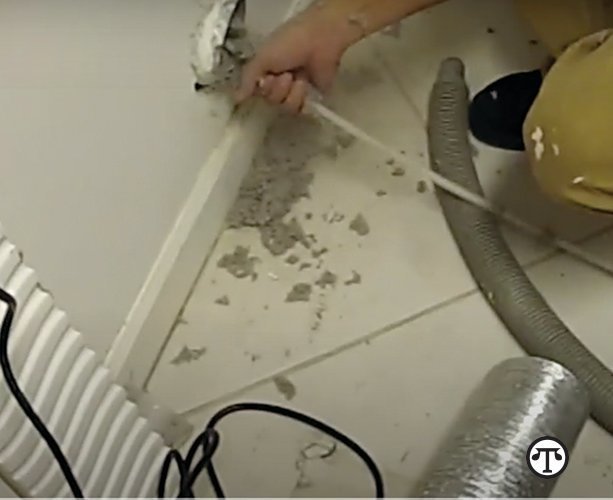FOR YOUR HEALTH: Prepare for allergy season in fall

Professionally cleaned air ducts can cut down on allergens in your home.
(NAPSI)—More than 50 million Americans suffer from allergies each year and for many of them, there are some added anxieties. For example, many people don’t realize allergies can be deadly. Or that eating local honey, living in a dry climate or avoiding cut flowers won’t cure allergies or prevent an allergic reaction. And these days, there’s often the question: Is it allergies or is it COVID-19? Fortunately, there are tests doctors can perform that can help them make that distinction. Here are a few facts that can help you, too.
What To Look For
Allergy symptoms can include watery eyes, congestion, runny nose, itchy eyes, vomitting and/or stomach cramps, wheezing, shortness of breath, dizziness or feeling faint, pale or blue skin, weak pulse, hives, repeated cough and tight, hoarse throat, trouble swallowing, swollen tongue.
What is an Allergy?
Allergies are the sixth leading cause of chronic illness in the U.S. An allergy is an overreaction of the body’s immune system to an ordinarily harmless substance. Allergies exist throughout the year, indoors and out, and affect people of all ages. Animal dander, house dust mites, foods, grasses, trees, weeds, and molds can all trigger an allergic reaction.
Autumn Allergies
Some allergies are seasonal and more likely to occur at different times of the year. The most common culprit for fall allergies is ragweed, which grows wild almost everywhere, generally between August and November. A number of plants that thrive during cool nights and warm days also trigger fall allergies.
Who is Affected?
Twenty to 40 percent of the population—including at least one of every four children—suffers from allergies*. People with allergies are often sensitive to more than one allergen. Prevention or treatment can make the difference between chronic illness and a productive, healthy life.
Diagnosing Allergies
Unfortunately, many of these also show up when someone has a cold, the flu or even COVID-19 but doctors do have ways to tell the difference. The first step is to identify allergen-specific antibodies called Immunoglobulin E (IgE). This can be done two ways. 1. Skin Prick Testing: Commonly performed on the forearm and sometimes the back, the skin is cleaned with alcohol and an allergen extract is pricked into the skin. If an allergy is present, a small itchy bump and surrounding redness often referred to as a “wheal and flare” will appear in about 15 minutes. This indicates the specific allergen. 2. In-Vitro Testing: The doctor simply draws a small amount of blood and has it tested in a lab. It is a less invasive method and receives test results within 24 hours. Many professional medical societies recommend also using in-vitro tests such as the OPTIGEN® Allergy Test. So, once you know you have allergies, what can be done? Here are some options.
Treatments
Allergy management falls into three main categories: avoidance, medication and immunotherapy. Avoidance: Once the source of an allergy is identified, a solution may be to simply avoid it. This is most effective with food and animal allergies. Medication: Prescription drugs can reduce allergy symptoms. Many are effective immediately, though some may have side effects or not work for everybody. Immunotherapy: Allergy shots are given frequently in scheduled doses of gradually increasing concentrations using extracts containing relevant allergens. The idea is to slowly desensitize the body to the offending allergens. Ideally, an injection program can be discontinued after some years.
Learn More
For additional facts and tips on dealing with allergies, visit www.henryschein.com/
Responsible journalism is hard work!
It is also expensive!
If you enjoy reading The Town Line and the good news we bring you each week, would you consider a donation to help us continue the work we’re doing?
The Town Line is a 501(c)(3) nonprofit private foundation, and all donations are tax deductible under the Internal Revenue Service code.
To help, please visit our online donation page or mail a check payable to The Town Line, PO Box 89, South China, ME 04358. Your contribution is appreciated!


Leave a Reply
Want to join the discussion?Feel free to contribute!